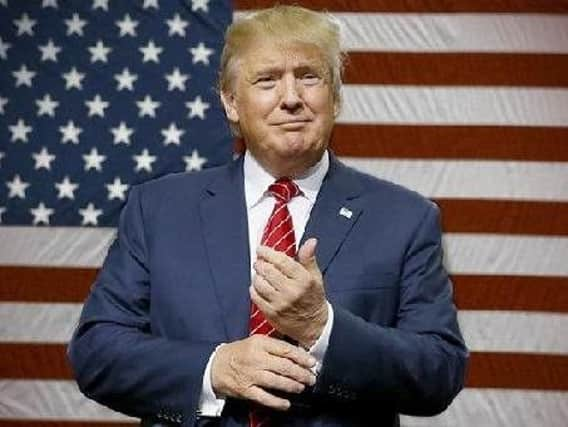Trade now coming to the fore


Since Donald Trump was elected US president the government has been making much of the prospects of a trade deal. It has suggested we are now top of the queue for deals, and that it is only a matter of signing on the dotted line once the UK leaves the EU. Only then can it negotiate trade deals with countries that already have trade arrangements with the EU. The current actions of the US with regard to beef however underline that this could be an example of UK government hope triumphing over realistic expectations. There is now a growing awareness in the farming and food industry that trade will decide whether Brexit can succeed. The danger remains that to buy deals the government will allow food imports with low on zero tariffs, in comparison to those that would be imposed by the EU.
US and other beef enters the EU via a special tariff, restricted to beef from cattle with no hormone growth promoters administered. Since that was agreed with the US, to head off questions as to whether the EU ban on beef from hormone treated animals was legal under World Trade Organisation rules, that tariff has been extended to other countries. These include Australia, Canada, Uruguay and Argentina, but without the volume being increased. The US believes that is unfair. But the bigger issue is that the US beef industry wants retaliatory action against EU products, because it believes the ban on beef from animals treated with hormone growth promoters is unscientific.
Advertisement
Hide AdAdvertisement
Hide AdThis will be the first test in agricultural trade of the Trump presidency’s commitment to put America first. A good trade battle with Brussels could attract the sort of publicity he wants. Beyond that, it is evident that regardless of who is in power the US is tough on trade issues and prepared to retaliate if it believes it is on the receiving end of unfair treatment.
What is now happening between the US and EU is also a sign of what could lie ahead for the UK, if we end up with the hardest of hard Brexit deals. That would be if the UK were completely out of the Single Market, and not part of the European Economic Area (EEA) customs union. This allows tariff free or reduced tariff trade in Europe. Treated like a third country, no different to India, Brazil or New Zealand, the UK would face massive duties to get food products into the EU. This is why many even pro-Brexit politicians would like to see the UK in the EEA.
There is a lot of sabre rattling from politicians in other EU member states. They believe the UK should be ‘punished’ for deciding to leave the EU. They are also angry that the UK’s departure will blow a big hole in the EU budget. However whether those making the most noise can afford to pull the trigger is open to question.
UK food exports to the EU 27 were around 15 billion euro last year, but imports by were 35 billion. That makes the UK, by far, the biggest food export market for the EU 27. As a percentage of global exports it would account for a quarter of EU 27 trade, against 12 per cent for the US and just six per cent for China. The country most vulnerable to a loss of the UK food market would be the Netherlands, followed by Ireland, France, Germany and Spain. This is why, while a number of EU member states are talking tough about Brexit, they will ultimately have to compromise over market access. That has to be some comfort for farmers dealing with a Westminster government with no post-Brexit agricultural policy, and no apparent interest in developing one soon.